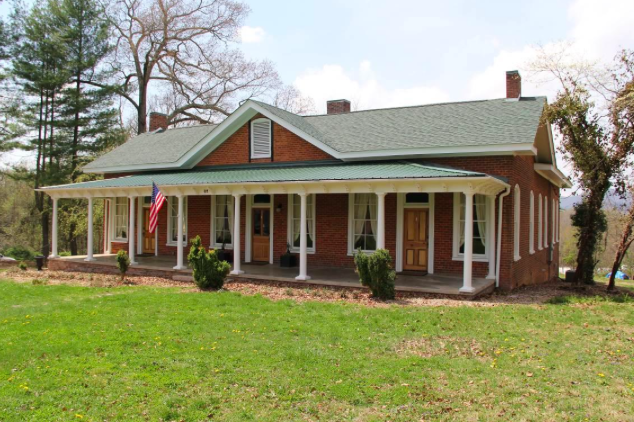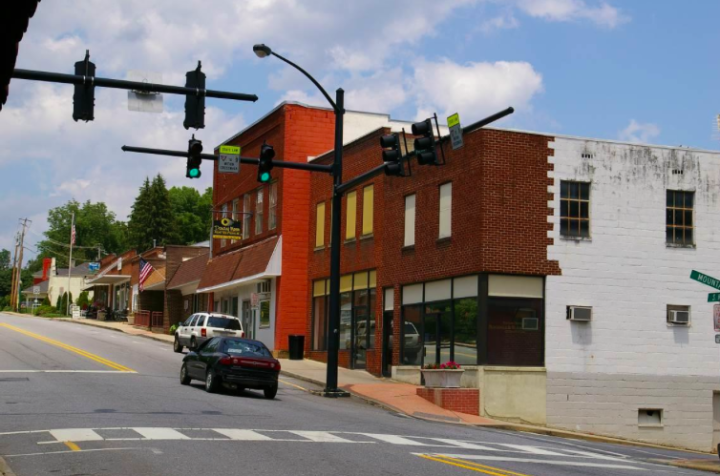From the NC Department of Natural and Cultural Resources
Press release
RALEIGH, N.C. — The North Carolina Department of Natural and Cultural Resources is pleased to announce that one district and five individual properties across the state have been added to the National Register of Historic Places. The following properties were reviewed by the North Carolina National Register Advisory Committee and were subsequently approved by the North Carolina State Historic Preservation Officer and forwarded to the Keeper of the National Register.
“North Carolina is a leader in the nation’s historic preservation movement and the National Register is a vital tool in the preservation of our state’s historic resources” said Susan Kluttz, Secretary of the North Carolina Department of Natural and Cultural Resources. “If we count all of the buildings classified as contributing to the significance of historic districts listed in the Register, it is estimated that North Carolina has approximately 75,000 National Register Properties.”
The listing of a property in the National Register places no obligation or restriction on a private owner using private resources to maintain or alter the property. Over the years, various federal and state incentives have been introduced to assist private preservation initiatives, including tax credits for the rehabilitation of National Register properties. As of January 1, 2015, over 3,100 rehabilitation projects with an estimated private investment of over $1.96 billion have been completed.
…
In Western North Carolina
Seven Oaks, Asheville, Buncombe County, listed 8/13/15
Constructed in the 1870s, Seven Oaks is significant in Asheville for its Italianate-style architecture and brick construction. Buildings of this style, once common in the city, were largely removed in the later 1800s and early 1900s as Asheville’s population-and built environment-grew. One of only seven remaining nineteenth-century brick houses in Asheville, Seven Oaks exhibits distinctive Italianate architectural details such as penciled mortar joints on the façade, bracketed porch eaves, segmental-arched windows and doors, carved mantels, tall ceilings, and ornate interior moldings.
Mars Hill Commercial Historic District, Mars Hill, Madison County, listed 9/8/15
Developed in response to the growth of nearby Mars Hill College, the Mars Hill Commercial Historic District is significant for its architecture and its commercial role in this small Madison County community. From 1915 until 1965, the downtown supported-and was supported by-the growing campus population. The earliest commercial buildings, one- and two-story frame structures, were gradually replaced with masonry buildings that housed a bank, pharmacy, dry goods store, florist, department store, grocer, and numerous other businesses.
About The National Register of Historic Places
The National Register of Historic Places is the nation’s official list of buildings, structures, objects, sites, and districts worthy of preservation for their significance in American history, architecture, archaeology and culture. The National Register was established by the National Historic Preservation Act of 1966 to ensure that as a matter of public policy, properties significant in national, state, and local history are considered in the planning of federal undertakings, and to encourage historic preservation initiatives by state and local governments and the private sector. The Act authorized the establishment of a State Historic Preservation Office in each state and territory to help administer federal historic preservation programs.In North Carolina, the State Historic Preservation Office is an agency of the North Carolina Department of Natural and Cultural Resources. Kevin Cherry, the Department’s Deputy Secretary of Archives and History, is North Carolina’s State Historic Preservation Officer. The North Carolina National Register Advisory Committee, a board of professionals and citizens with expertise in history, architectural history and archaeology, meets three times a year to advise Dr. Cherry on the eligibility of properties for the National Register and the adequacy of nominations.
The National Register nominations for the recently listed properties may be read in their entirety by clicking on the National Register page of the State Historic Preservation Office website. For more information on the National Register, including the criteria for listing, see this page.
About the North Carolina Department of Natural and Cultural Resources
The N.C. Department of Natural and Cultural Resources (NCDNCR) is the state agency with a vision to be the leader in using the state’s natural and cultural resources to build the social, cultural, educational and economic future of North Carolina. Led by Secretary Susan Kluttz, NCDNCR’s mission is to improve the quality of life in our state by creating opportunities to
experience excellence in the arts, history, libraries and nature in North Carolina by stimulating learning, inspiring creativity, preserving the state’s history, conserving the state’s natural heritage, encouraging recreation and cultural tourism, and promoting economic development.NCDNCR includes 27 historic sites, seven history museums, two art museums, two science museums, three aquariums and Jennette’s Pier, 39 state parks and recreation areas, the N.C. Zoo, the nation’s first state-supported Symphony Orchestra, the State Library, the State Archives, the N.C. Arts Council, State Preservation Office and the Office of State Archaeology, along with the Division of Land and Water Stewardship. For more information, please call (919) 807-7300 or visit www.ncdcr.gov.






Before you comment
The comments section is here to provide a platform for civil dialogue on the issues we face together as a local community. Xpress is committed to offering this platform for all voices, but when the tone of the discussion gets nasty or strays off topic, we believe many people choose not to participate. Xpress editors are determined to moderate comments to ensure a constructive interchange is maintained. All comments judged not to be in keeping with the spirit of civil discourse will be removed and repeat violators will be banned. See here for our terms of service. Thank you for being part of this effort to promote respectful discussion.